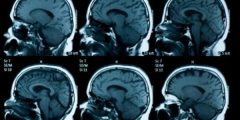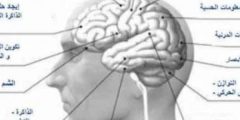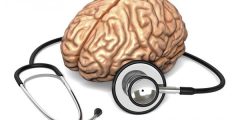Alzheimer's disease
Alzheimer's disease is the most common dementia disease, as the disease indicates memory loss and weakness in the brain's cognitive functions in a way that may affect the patient's daily activities. Aging is considered the greatest risk factor for developing Alzheimer's disease, but it is possible to contract the disease at a young age. Alzheimer's disease develops over time, and the patient's ability to even conduct daily conversations declines. It is worth noting that there is no complete treatment that can cure the disease, but it is possible to control the symptoms and slow the progression of the disease to the extent that improves the quality of life of the patient and his family.
How to cope with Alzheimer's disease
emotional side
Usually, the patient initially turns to searching for the appropriate treatment, but paying attention to and understanding the feelings and emotions that the patient may feel contributes to the patient’s acceptance of this disease, and increases his ability to deal with the various symptoms. Among the feelings that the patient may feel are the following:
- Shock and denial of the news.
- Denial.
- anger.
- Sadness and depression.
- the fear.
- Validation and acceptance.
The patient may feel all of the above feelings at once, or some of them, and in the end the patient reaches a certain level of acceptance of the disease, and the following can be followed to maintain the patient’s psychological health:
Read also:Parkinson's disease mechanism- Writing a diary: Writing a diary helps the patient express the feelings and thoughts he feels without fear of being judged by others.
- Social support: Spending quality time with family and friends, and not isolating oneself from others, is beneficial for the patient’s mental health.
- Seek advice from a specialist, as the patient may suffer from stress, depression, or any group of other emotional disorders. Therefore, the patient is advised to communicate with a psychological counselor or specialist to find better ways to deal with the disease and to help the patient express his feelings better.
- Asking questions: It is important to collect the questions that the patient has about his illness, ask them to the specialist, and get the answers. This helps to understand and accept the disease.
- Think of a way to care for the patient in the future.
- Collecting information about the disease, as collecting information prepares the patient psychologically for what he should expect from the disease, and also helps him save his time and effort in changing something that will not change, and research also keeps the patient informed of the latest methods of treatment and prevention.
The practical side
On the practical side, the following can be followed in order to maintain independence and improve memory:
- Prepare a chart of things the patient must complete during the day.
- Write names and important events.
- Label drawers and cabinets to make it easier to identify things.
- Keep a list of necessary phone numbers.
- Follow a daily routine; The routine increases the patient’s independence and does not depend on others for a longer period.
- Asking for help when needed from close people, thus giving the patient an opportunity for people who want to help him.
- Focus on things that the patient is still able to do, even if it takes days, and avoid difficult tasks.
- Conduct financial studies to calculate the cost of various health service providers and health facilities, and determine appropriate options.
- Actively engage in any social activities during the injury period.
- Participation in psychological support groups and the services provided through them.
Read also:What are the causes of back numbness?
Symptoms of Alzheimer's disease
The appearance of symptoms is linked to different places in the brain, and accordingly affects the functions associated with these places, and these functions include the following:
- Emotional behaviors, or the patient's emotional personality.
- Language and way of speaking.
- memory.
- Realizing things.
- Thinking and judging things.
The disease initially appears in the form of recurrent forgetfulness, and a distinction must be made between Alzheimer's disease and mild cognitive impairment. It is natural forgetfulness as a result of aging, which affects memory and thinking, but does not affect the patient’s daily activities. Symptoms of mild cognitive impairment include:
- Difficulty performing more than one task at the same time.
- Difficulty solving problems.
- Forgetting events or conversations, even if they were recent.
- The patient took longer to perform the difficult tasks required of him.
The symptoms of early Alzheimer's are as follows:
- Difficulty performing tasks that require mental effort, such as: difficult mental games.
- Getting lost, even on familiar roads.
- Speech problems, such as difficulty remembering the names of places and things.
- Loss of interest in doing things that used to bring pleasure to the patient.
- A difference in personality occurs.
- Putting things in other than their designated places.
Read also:What are the symptoms of brain atrophy?
Medicines used to treat Alzheimer's disease
There is still no treatment for Alzheimer's disease, but there is a group of medications that are used to relieve symptoms and slow the speed of the disease's progression for the longest possible period. In early cases of the disease, the doctor may prescribe some medications, such as: Donepezil, Or rivastigmine (in English: Rivastigmine); These medications affect the levels of the neurotransmitter acetylcholine, which plays a role in improving memory. The medications help maintain the transmitter at good levels in the brain. In other advanced cases, the doctor may prescribe donepezil or memantine, which helps prevent the effect of glutamate. (in English: Glutamate), which is secreted in large quantities during the disease, and contributes to the destruction of brain cells. The doctor may resort to dispensing other medications, such as: antidepressants, or anti-stress agents. This is to treat the symptoms accompanying the disease, such as:
- Depression.
- Hostility.
- Hallucinations.
- irritability
- uncomfortable.
Ways to prevent Alzheimer's disease
Alzheimer's disease can be prevented by treating risk factors and dealing with them in an effective way to reduce the chance of the disease occurring. Studies have shown that exercising and adhering to a healthy diet reduce the chance of heart disease, Alzheimer's disease, and other dementias occurring. Among these healthy practices are the following:
- Doing exercise regularly.
- Eat fresh foods and foods that contain small amounts of saturated fats.
- Adherence to diabetes, high blood pressure, and cholesterol treatments.
- Quit Smoking.









